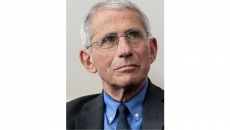A new poll suggests people in the United States and parts of Europe believe their countries will be better equipped to handle the next major health crisis.
The Pew Research Center poll out today finds optimism for the future among a majority of 4,000 respondents in the U.S., the United Kingdom, France and Germany.
74% of Americans say the coronavirus outbreak has changed their life a great deal or fair amount. This is up from 67% in June 2020. https://t.co/WomNdU1mXj pic.twitter.com/1Vt0AcuG70
— Pew Research Center (@pewresearch) February 3, 2021
In Europe, that optimism was strongest among those who already believe their countries have done a good job in the fight against COVID-19.
In the U.S., however, confidence in the future is high — 67 per cent — regardless of whether respondents were disappointed or satisfied by the government's handling of the pandemic.
The poll, conducted by phone in November and December, carries a margin of error of between 3.7 and 4.2 percentage points, depending on the country surveyed.
It found a growing percentage of respondents in all four countries said COVID-19 had changed their lives significantly, including 74 per cent in the U.S. and 70 per cent in the U.K.
The poll did not survey Canadians, but the country took a big step Tuesday towards equipping itself for the next viral outbreak.
The federal government is ramping up Canada's capacity to manufacture vaccines, with plans to make the Novavax shot the first of its kind to be made domestically.
The poll also asked respondents how they would feel if their respective governments were to make a safe and effective COVID-19 vaccine mandatory.
Only in the U.K. did a majority of those surveyed, 62 per cent, said they would find such a policy acceptable. In France, 75 per cent of respondents said they would be opposed to a mandatory vaccine policy.
In the U.S., 57 per cent said they opposed the idea, but a much larger gap emerged when the results were divided along partisan lines.
Only 28 per cent of those who identified as conservatives said they would support requiring vaccination, compared to 60 per cent of U.S. liberals.
More broadly, a growing majority of respondents in the U.S., the U.K. and France said their lives had changed due to COVID-19.
Only in Germany did fewer than half of those surveyed say the virus had changed their lives either "a fair amount" or "a great deal." But even there, 47 per cent described significant change, up from 39 per cent in June.
In all four countries, a higher percentage of women described a significant impact from COVID-19 — a likely reflection of research that shows women losing their jobs at a higher rate than men.






